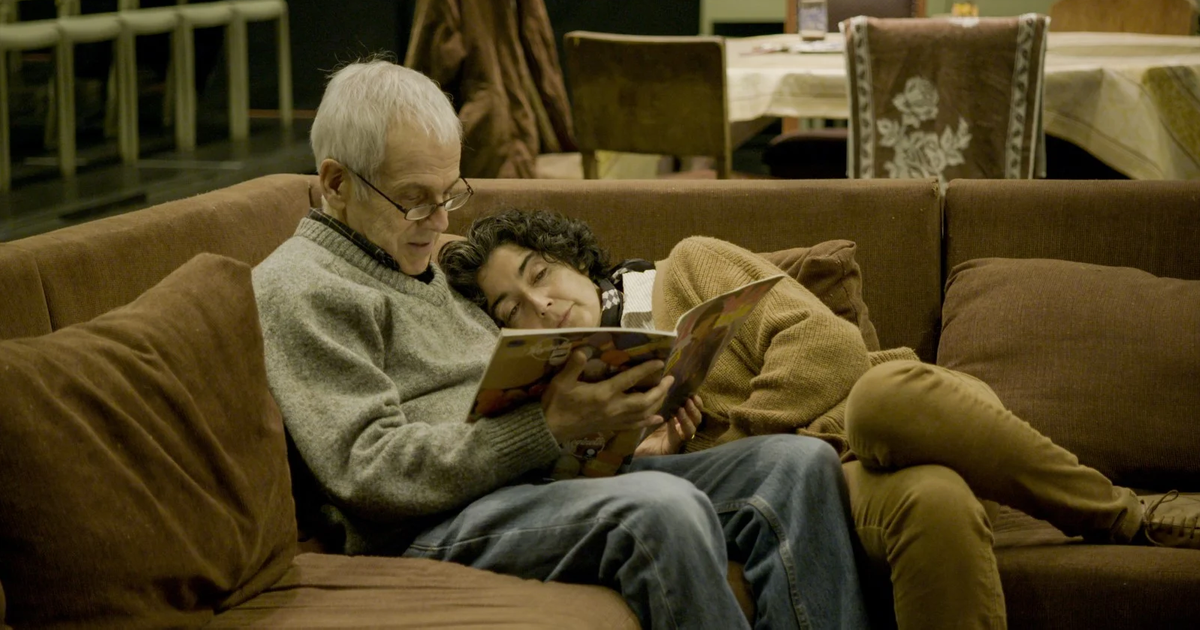Dependencies of the General Archive of the Spanish Civil War, in Salamanca.Susana Davidarranz
From expectation to frustration.
This is how the state of mind of historians, archivists and NGOs has evolved when they first learned that the Government had finally approved a new Law for the Protection of Classified Information and then accessed its content.
After demanding for years a reform of the Francoist Official Secrets Law, which classified documents indefinitely and forced researchers to travel through foreign archives to learn about the recent history of Spain, the announcement of the new law opened the expectation of a homologation with the most advanced democracies.
Although all those consulted admit that it is a step forward, they criticize its "black holes";
among others, that the automatic declassification not be applied retroactively after a certain period of time has elapsed to the secrets of the last 53 years;
those referred to the end of the dictatorship, the transition and the first steps of the recovered democracy.
Carlos Sanz Díaz, professor of Contemporary History at the Complutense University, highlights, as positive aspects of the project, "that finally there is a law that adapts to the constitutional framework, defines the subjects that can be classified and establishes declassification deadlines."
He also sees "some progress" in the fact that the Third Chamber of the Supreme has the last word when deciding on the declassification of a document.
However, he sees “an imbalance in favor of State security and against transparency”, with “excessive and unnecessarily long terms” of classification (up to 50 years, extendable to 65 in top secrets).
But where he sees a real "black hole" is in the "non-retroactivity of the law";
the non-application of expiration periods to secrets prior to the entry into force of the same.
In his opinion, these secret documents, accumulated since 1968, are protected by a "triple lock": only an "affected person" can request their declassification, which seems to rule out historians, researchers or journalists;
the applicant must present “the reasons that justify the declassification and identify in detail the information requested”;
and the authority can deny it if it considers that national security or defense is put at risk.
For Juan Carlos Pereira, professor of Contemporary History, this is one of the most incomprehensible points of the law: "How are you going to request a document if you don't know it exists?"
In the archive of the Foreign Office, the British Foreign Office, he explains, there is an index of documents and those that are classified bear a stamp that indicates when they will be accessible to the public.
On January 1 of each year all those who have already completed their classification period are opened.
But in Spain there is no public registry of classified documents, so the citizen cannot make that "detailed identification" required by law to request it.
Like Sanchez,
Pereira believes that the 50-year term for top secrets is "an exaggeration" and that the multiplication of authorities with the capacity to classify leads to "discretion."
“We received the draft with hope” he summarizes, “but we have been left very frustrated.
We cannot continue protecting secrets of the dictatorship.
It is not serious”, he concludes.
Esteban Beltrán, director of Amnesty International Spain, believes that the bill "as it is written, will not take substantial steps in relation to [knowledge of] the official truth nor will it illustrate our most recent past."
Esteban Beltrán regrets that the text “does not refer to any framework on human rights or to the global principles on national security and the right to information of the Parliamentary Assembly of the Council of Europe” or to important judgments of the European Court of Human Rights.
It is not a trivial matter, he explains, since this means that there is no express prohibition of classifying information on human rights violations, nor does it establish protection measures for
whistleblowers
who reveal the concealment of these practices.
"Something illegal cannot be classified," he warns.
For Beltrán, it is essential that the declassification deadlines be automatic and doors are not left open like that of article 19 of the text, which allows "exceptionally" to reclassify information that has already been declassified;
that is, to prolong the secret without any time limit.
In summary, the new law "has an expansive orientation of secret matters, with very limited judicial control, it is based on such ambiguous and broad categories [of what can be classified and who can classify] that it lends itself to arbitrariness and without a clear framework of reference to the right of citizens to know”.
This allows, he adds, to apply fines of up to three million euros to those who spread secret information, including the media.
Amnesty International is preparing its allegations regarding the draft bill, which has been submitted for public consultation between August 3 and 12, in the middle of the summer holidays, "a rather short period and out of hand for civil society to be able to participate," it said. complains Beltrán, who has not given up making the voice of his organization heard.
For Henar Alonso, an official of the Optional Corps of State Archivists, what the bill does is "raise to the rank of law the rules for the protection of classified information of the CNI that were already being applied."
In his opinion, the key point is that "it is not a law of classified documents but of classified information, a much more diffuse and difficult to control concept."
The practical consequences of this apparent nuance are very important, he explains, since all legislation on archives is aimed at facilitating public access to information, while this law seeks to restrict access to it.
It is striking, in his opinion, that he orders the destruction of the drafts and previous materials of the classified reports, when the Penal Code punishes the official who destroys a document in his custody with a prison sentence.
This expert archivist warns that all document management is based on information being identified, described and located in a registry.
“If the obligation to document is not clear, the deadlines [for declassification] will not work and the
syndrome of empty files
[the lack of documentation of a historical stage] will occur.”
In her opinion, not applying the declassification deadlines to secrets prior to the new law means, in practice, “keeping the 1968 law in force ″.
Some secrets that historians have been waiting years to know
Researchers and historians have been waiting for years for the lock on the Francoist law on official secrets to be lifted in order to access documents that can fill gaps or, at least, shed new light on recent episodes in the history of Spain.
Since there is no public registry of classified documentation, it is not possible to know what is hidden inside the secret files, but these are some of the unknowns that many of them would like to be able to clear up:
Behind the scenes of 23-F.
For years there has been speculation about the existence of recordings of the conversations that Tejero had on the night of February 23, 1981 from Congress and the King from La Zarzuela.
The only secret document that is known, the Jáudenes report on the involvement of the Cesid (the Higher Defense Information Center, antecedent of the CNI) in the attempt, was received by the president of the War Council that judged the coup plotters.
It is certain that there are more reports from the Cesid, in particular about the civil plot of the coup, of which only the ultra Juan García Carrés sat on the bench, and about the successive conspiracies that threatened the young Spanish democracy until the assassination attempt that the extreme right planned to perpetrate the 1985 Armed Forces Day in A Coruña.
The dirty war against ETA
.
Beyond finding the alleged founding act of the GAL (Antiterrorist Liberation Groups), an instrument of State terrorism between 1983 and 1987, or documentarily clearing the X of its creator, the reports stored by the Ministry of the Interior should document many extremes;
among others, the payments made with funds reserved to finance the dirty war against ETA, already from the UCD stage, or buy the silence of its protagonists, years later.
A leak of secret documents, the so-called Perote papers, prepared by the former head of the Cesid Operative Group, allowed the bodies of Lasa and Zabala to be recovered or to clarify the circumstances in which Mikel Zabalza died, among other cases.
Withdrawal from the Sahara.
The green march and the Spanish abandonment of the Sahara, in November 1975, in the midst of Franco's death throes, continue to mark Spanish foreign policy and the situation in the entire Maghreb.
Although the secret agreements of Madrid between Spain, Morocco and Mauritania, by which the until then metropolis made sure to continue exploiting some resources of its former colony, ended up being published by the magazine 'Interviú', many of the political maneuvers and diplomatic efforts remain to be known that surrounded a decision that would serve as a trigger for a war not yet concluded.
The Palomares Incident.
The fall of four thermonuclear bombs in the Almeria district of Palomares in 1966, after a tanker plane and a B-52 bomber collided in flight, was the most serious nuclear accident ever in Spain.
The radioactivity released by the bombs continues to contaminate the soil in the area more than half a century later.
In November 2020, the Council of Ministers approved the declassification, at the request of the National Court, of the Palomares Rehabilitation Plan, approved a decade earlier by the Nuclear Safety Council, but not many reports from the time are yet known.
negotiations with NATO.
The negotiations for Spain's entry into NATO, which have just been 40 years old, are the subject of study for many historians.
To what extent entry into the European Union, on January 1, 1986, was conditional on Spain remaining in NATO and Felipe González ratifying the decision that Leopoldo Calvo Sotelo had taken in his day continues to be the subject of debate.
Gibraltar.
The presence of the British colony in the south of Spain has been a distorting element of Spanish foreign policy.
The cables of the Ministry of Foreign Affairs and the Defense reports should clarify what role the Rock played in the negotiations for joining NATO and the EU and the role of Spain during the Falklands war, which pitted the United Kingdom and Argentina against each other. in 1982, when an Argentine command planned to attack a British ship in the port of the colony.
50% off
Subscribe to continue reading
read without limits
Keep reading
I'm already a subscriber

/cloudfront-eu-central-1.images.arcpublishing.com/prisa/36O4ZLGYWRCTXMH6K2FY5XOO5Q.jpg)


/cloudfront-eu-central-1.images.arcpublishing.com/prisa/VOT7MD2S4VGTBN4VUOZKAZMCQY.jpg)
/cloudfront-eu-central-1.images.arcpublishing.com/prisa/XTCY6IKYNBDFICDL7Y5VEUJQSU.jpg)



/cloudfront-eu-central-1.images.arcpublishing.com/prisa/2C7HIYVHBZDA3HEZNJ6CDVQPUM.JPG)

/cloudfront-eu-central-1.images.arcpublishing.com/prisa/KMEYMJKESBAZBE4MRBAM4TGHIQ.jpg)



